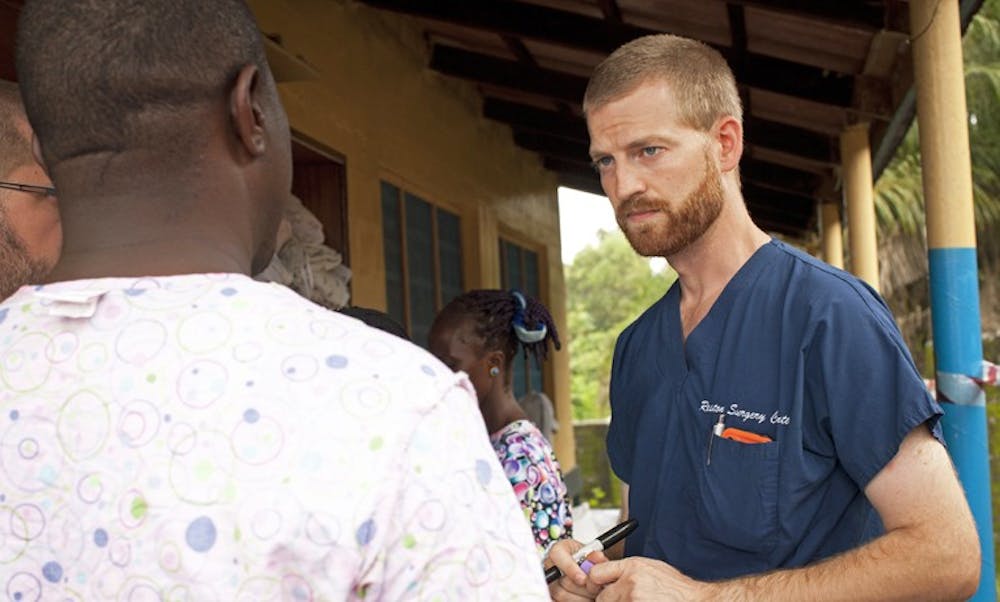Dr. Kent Brantly, an alumus of the IU School of Medicine, contracted the Ebola virus while treating patients in Liberia as part of an organization for international relief.
Brantly was treating patients diagnosed with Ebola as part of Samaritan’s Purse, a Christian organization that seeks to provide international aid.
According to the Samaritan’s Purse, Brantly is being treated at ELWA Hospital in Liberia and is improving.
According to a press release by Samaritan’s Purse, Brantly was serving as the medical director for the Ebola Consolidated Case Management Center in Liberia at the time of his diagnosis.
The Ebola virus begins with symptoms including fever and sore throat and can escalate to vomiting, diarrhea and internal bleeding.
The disease spreads through direct contact with blood and other bodily fluids as well as indirect contact with environments contaminated with such fluids, according to the World Health Organization.
There is no known cure.
Dr. David McRay, the director of maternal-child health at John Peter Smith Hospital in Fort Worth, Texas, where Brantly completed his four-year residency, said Brantly is scared his condition is deteriorating.
While at IU School of Medicine, Brantly was inducted into the Gold Humanism Honor Society, which formally recognizes medical students who demonstrate exemplary behavior that promotes humanism in medicine, according to the website.
Efforts made by Samaritan’s Purse are part of a larger multi-agency initiative to contain the Ebola epidemic in Liberia, Sierra Leone and Guinea, according to the organization.
WHO has reported that 1,201 people in the three African countries contracted the disease and 672 have died from it as of July 23.
Dr. Julie Boom, director of the Immunization Project at Texas Children’s Hospital in Houston, Texas, said Ebola kills anywhere between 50 to 90 percent of patients depending on the strain and where the outbreak is located.
She said early treatment is key to the patient’s survival.
Because of the efforts of the health professionals in West Africa, the current mortality rate has been about 60 percent, according to the Center for Disease Control.
Dr. Mauricio Ferri, a Brazilian intensive care specialist, is working on the Ebola outbreak on behalf of WHO.
He said he spends seven hours per day inside the treatment center fully dressed in personal protective equipment, caring for approximately 40 to 50 patients per day.
According to him, WHO provides personal protective equipment to all workers responding to the Ebola outbreak, including security guards, ambulance drivers, cleaners and professional health workers.
However, Ferri said he had not anticipated the difficult conditions.
“I knew it was going to be hard, but I did not expect this extent of challenges, in terms of lack of equipment and gaps in infection prevention and control measures,” Ferri said.
According to the Samaritan’s Purse, Brantly is being treated at ELWA Hospital in Liberia and is improving.
The CDC has issued a level two alert for travelers to Sierra Leone, Guinea and Liberia, recommending they avoid contact with blood and bodily fluids of those infected with the Ebola virus.




